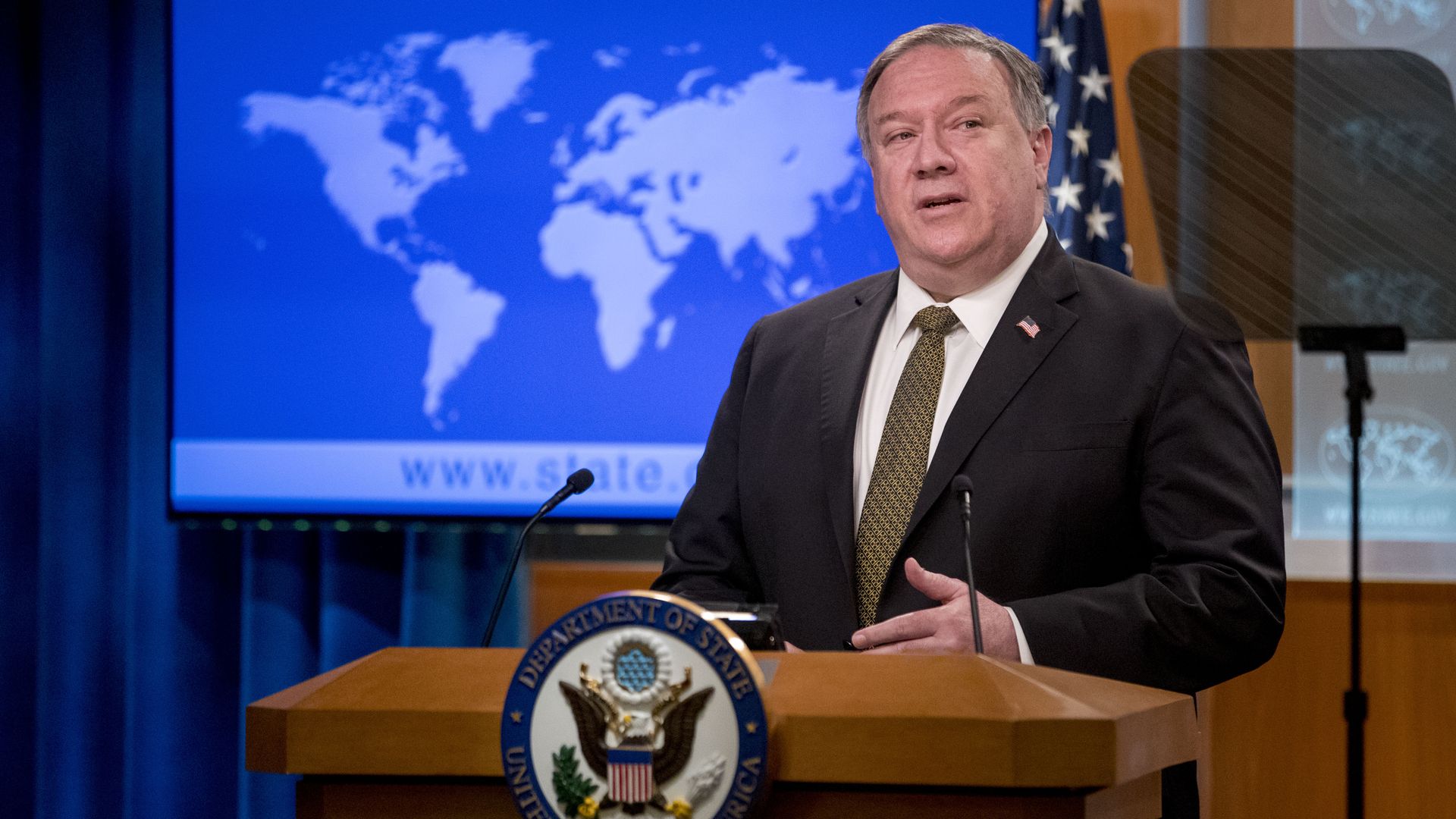U.S. designates 4 more Chinese media outlets as "foreign missions"
Add Axios as your preferred source to
see more of our stories on Google.

Secretary of State Mike Pompeo. Photo: Andrew Harnik/POOL/AFP via Getty Images
Four major Chinese state-owned media outlets will be required to inform the U.S. State Department of their personnel rosters and real-estate holdings as if they were foreign embassies, Reuters reports.
Driving the news: The restrictions will applied to the Global Times, China Central Television, China News Service and People’s Daily, bringing the total to nine Chinese state media outlets labeled by the Trump administration as arms of the Chinese government.
What they're saying:
These nine entities all meet the definition of a foreign mission under the Foreign Missions Act, which is to say that they are “substantially owned or effectively controlled” by a foreign government. In this case, they are effectively controlled by the government of the People’s Republic of China.
The decision to designate these entities is not based on any content produced by these entities, nor does it place any restrictions on what the designated entities may publish in the United States. It simply recognizes them for what they are.— State Department spokesperson
The big picture: This is the latest step in a media war between the U.S. and China that has escalated during the pandemic.
- In February, the U.S. designated five Chinese state media outlets as foreign missions, a step that Secretary of State Mike Pompeo called "long overdue."
- The U.S. then restricted the number of Chinese reporters who could work at foreign missions in the U.S. to 100, effectively expelling 60.
- In March, China revoked press credentials for American journalists who work for the New York Times, Washington Post and Wall Street Journal.
- In May, the U.S. announced that Chinese journalists working for non-American media outlets in the U.S. would be limited to 90-day work visas.
What to watch: Expect retaliation from the Chinese side, especially given that China still hasn't responded to the Trump administration's most recent decision concerning visas.
